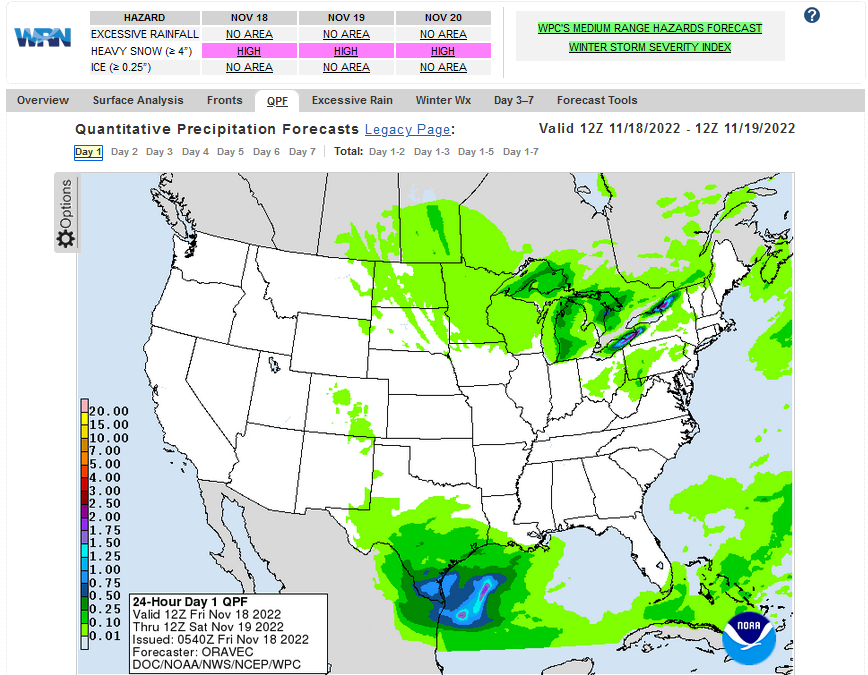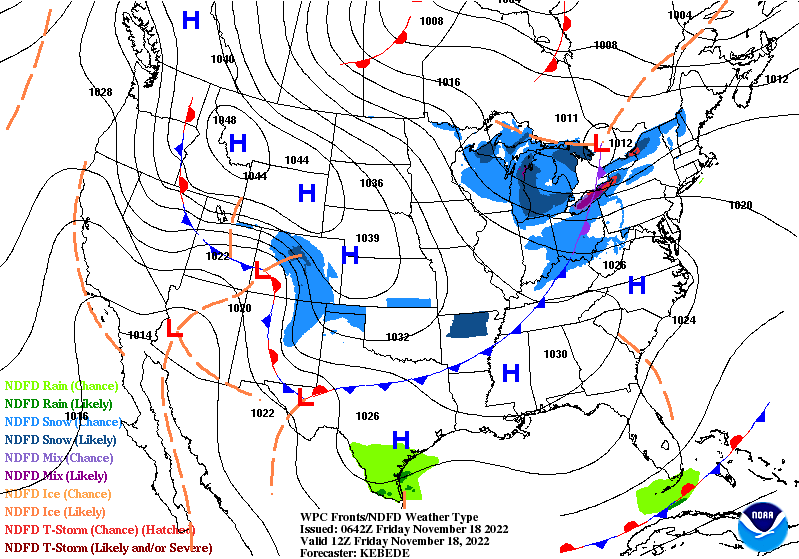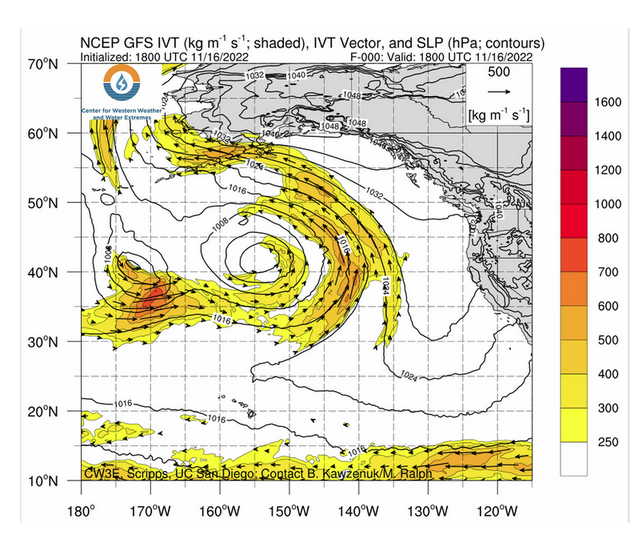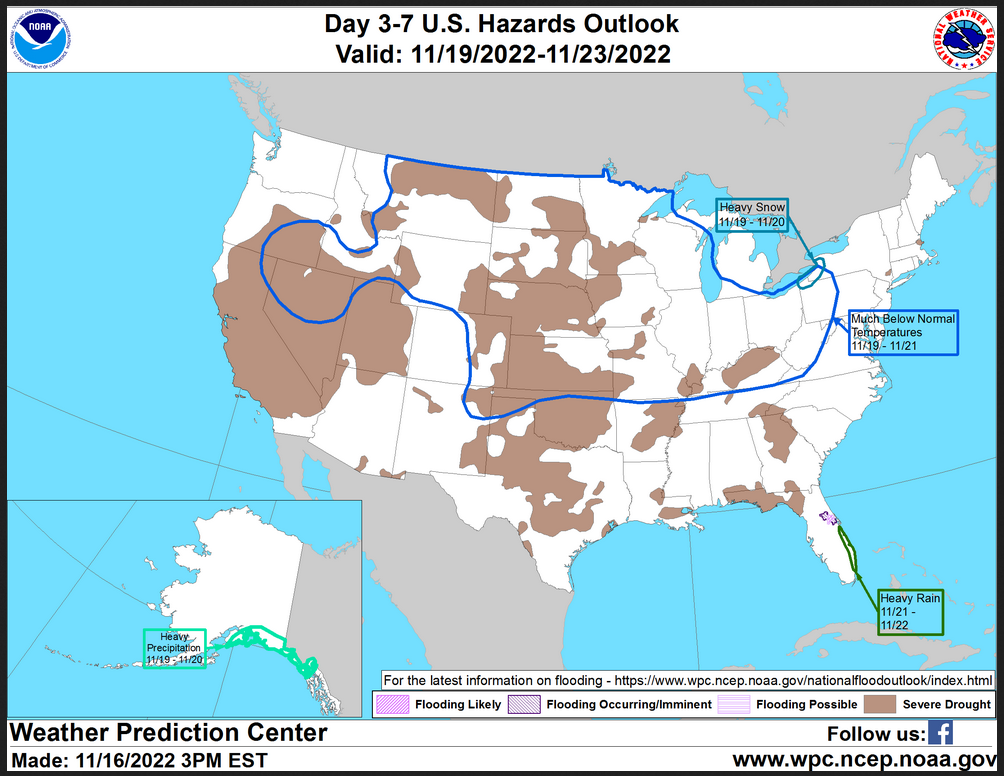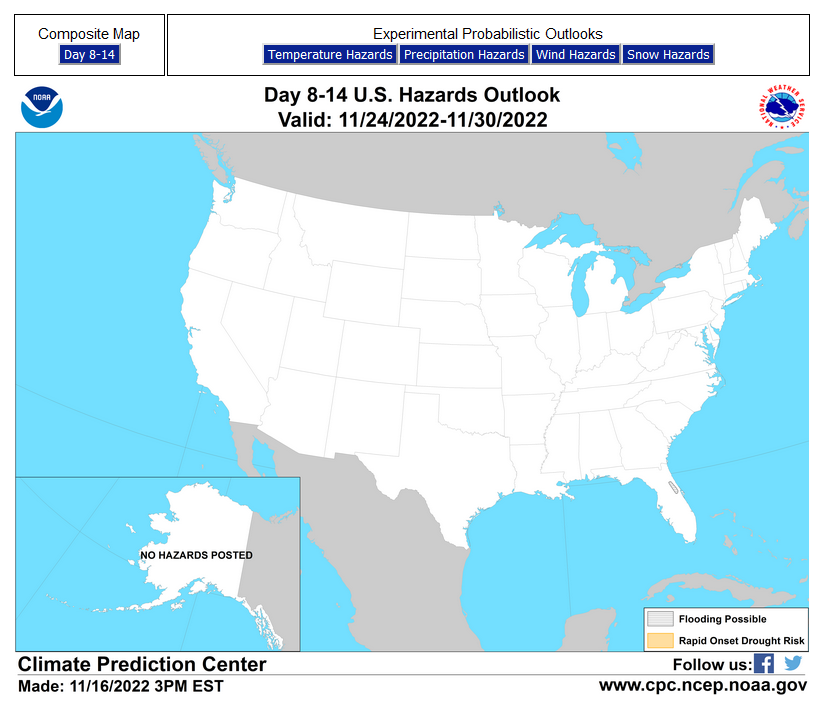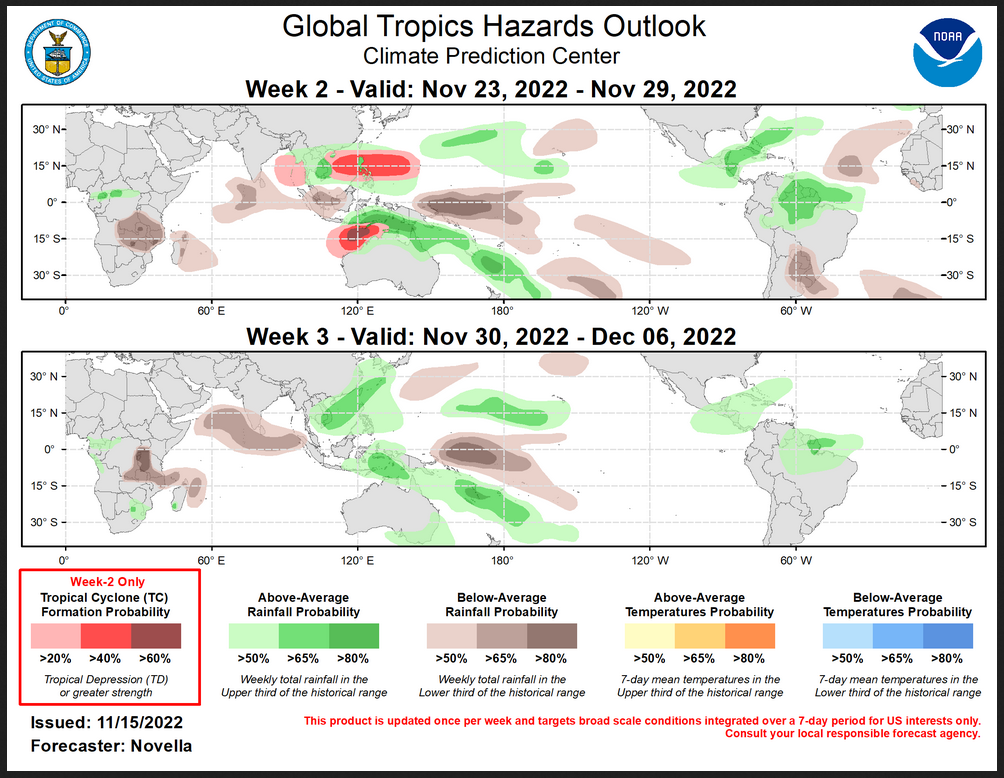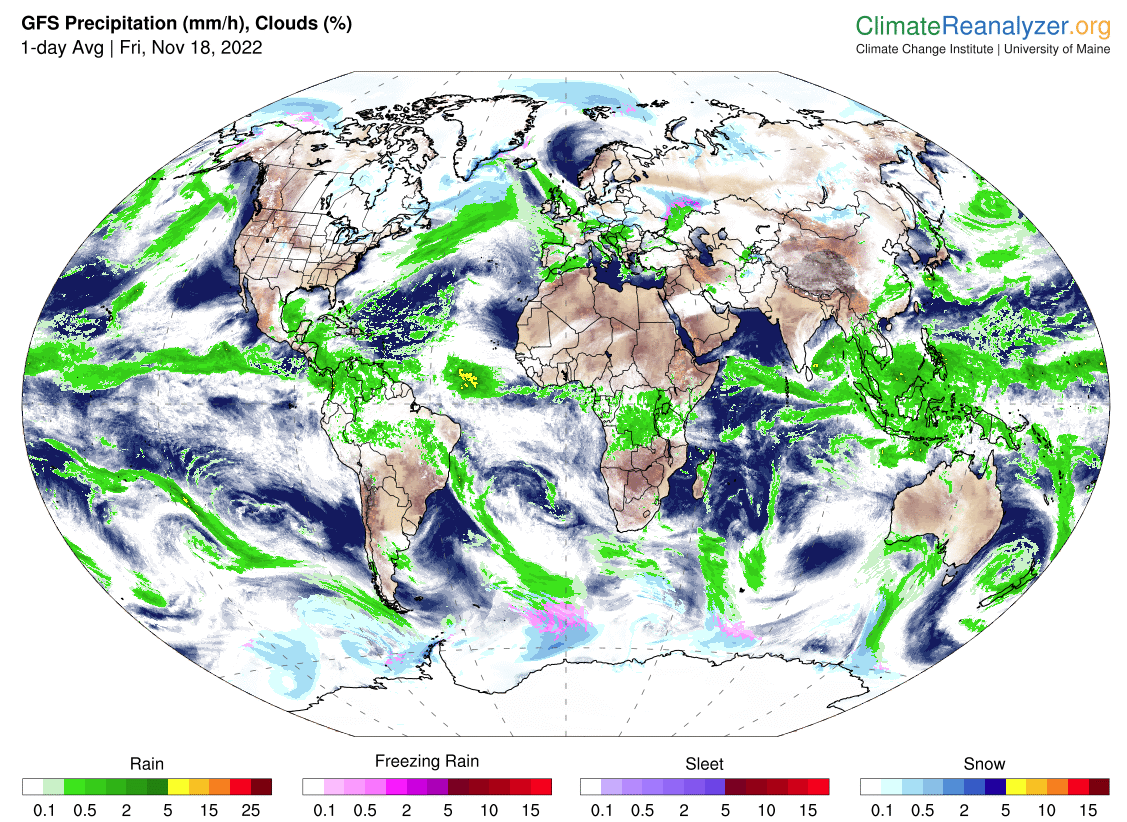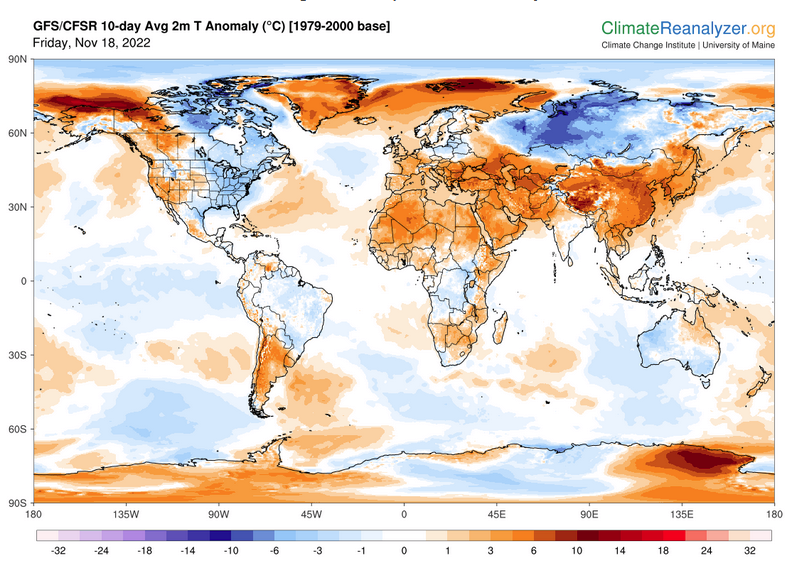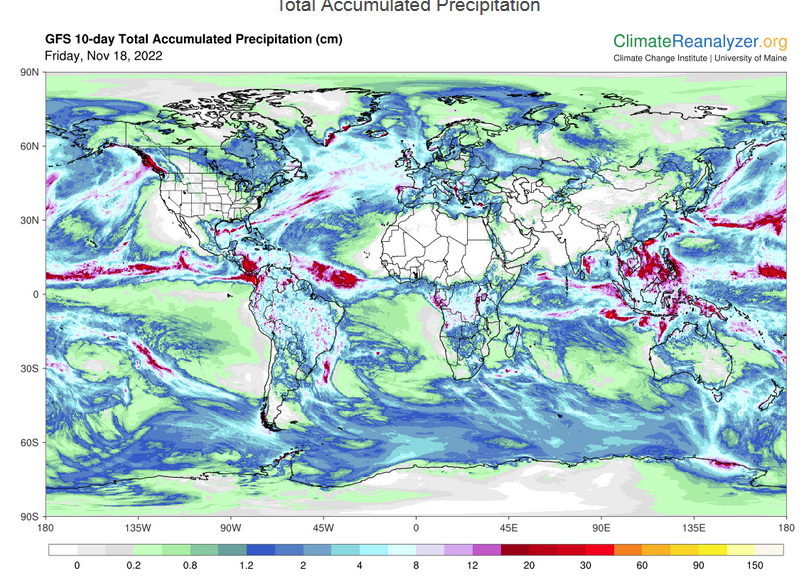Here is what we are paying attention to this evening and the next 48 hours from this evening’s NWS Forecast.
...Heavy lake effect snow downwind from the Great Lakes... ...Temperatures will be 10 to 25 degrees below average from the Great Lakes to the Rockies... ...There are Winter Storm Warnings, Winter Weather Advisories, and Lake Effect Snow Warnings snow downwind from the Great Lakes through the end of the forecast period...
Continuation of the NWS Short Range Forecast (It is updated twice a day and these updates can be found here.
Cold high pressure will move into the Northern Rockies, Northern Intermountain Region, and Northern High Plains, then extend into the Central Plains/Middle Mississippi Valley by Friday evening. The cold air associated with the high pressure will be 10 to 25 degrees below average over the Rockies, Plains, and Great Lakes. Upper-level energy will move over the Upper Midwest into the Northeast through Saturday. The cold air moving over the relatively warm waters of the Great Lakes will produce heavy lake-effect snow downwind from the Great Lakes through the forecast period. Heavy lake effect snow will persist through Sunday downwind of each of the Great Lakes. The most intense snowfall is expected through Friday. East of Lakes Erie and Ontario, snowfall will, at times, be accompanied by lightning, gusty winds, and rates of 3 inches per hour. The snowfall will produce near zero visibility, difficult to impossible travel, damage to infrastructure, and paralyze the hardest-hit communities. Snowfall rates will reach 1-2 inches per hour along the southern shores of Lakes Superior and the eastern shores of Lake Michigan, which will combine with gusty winds to produce near-zero visibility and dangerous travel. Total snow amounts of 1-2 feet are expected in many locations. Maximum snow accumulations are likely to exceed 4 feet in or near Buffalo, NY. Very cold air will accompany this event, with temperatures 20 degrees below normal forecast by the weekend. Moreover, the upper-level energy will produce light snow over the Upper Midwest through Friday morning. The upslope flow will also aid in creating snow over parts of the Central Rockies through Friday evening. On early Friday morning, low-level flow off the Western Gulf of Mexico will start to stream northward over the Southern Plains. The moisture and upper-level energy will produce light snow over parts of the Southern High Plains late Friday night into Saturday morning. In addition, light rain will develop over parts of the Western Gulf Coast on Saturday.
Current forecast of heavy precipitation (Updates can be found HERE)
Maps that relate the forecast to geography can be found by clicking Here for Day 1 and Here for Day 2.
Here is a 60-hour animated forecast map that shows how the short-term forecast is expected to play out
If it needs to be updated click here.
ATMOSPHERIC RIVERS
Click HERE to update. Here is some useful information about Atmospheric Rivers.
HAZARDS OUTLOOKS
Click here for the latest complete Day 3 -7 Hazards forecast which updates only on weekdays. Once a week probably Monday or Tuesday I will update the images. I provided the link for readers to get daily updates on weekdays. Use your own judgment to decide if you need to update these images.
Worldwide Tropical Forecast
(This graphic updates on Tuesdays) If it has not been updated, you can get the update by clicking here This is a new approach and covers weeks 2 and 3 not weeks 1 and 2. It has more information but I am having trouble getting used to it. As usual, it comes with a discussion which is below
Detailed Maps and Reports for the Western Atlantic and the Pacific Oceans
Below are four maps that summarize the situation for the Atlantic, Eastern, Central Pacific, and Western Pacific. Additional information can be accessed by clicking HERE
First the Atlantic
Click to view the forecast map and have access to additional information https://www.nhc .noaa.gov/gtwo.php?basin= atlc&fdays=5
Then Eastern Pacific
Click to view the forecast map and have access to additional information https://www.nhc.noaa.gov/gtwo.php?basin=epac&fdays=5
Then Central Pacific
Click to view the forecast map and have access to additional information https://www.nhc.noaa.gov/gtwo.php?basin=cpac&fdays=5
And the Western Pacific
Click to view the forecast map and have access to additional information https://www.metoc.navy.mil/jtwc/jtwc.html
Some Intermediate-Term Outlooks
Links to “Outlook” maps and discussions for three time periods. Days 6 – 10, Days 8 – 14, and Weeks 3 and 4. An outlook differs from a forecast based on how NOAA uses these terms in that an “outlook” presents information from deviation from normal and the likelihood of these deviations.
You have to click on the links because they do not update automatically and I do not want to have stale images in the article. But it is not difficult to click on a link and you get a large image plus a discussion. On Fridays in a separate article, we will show the images and provide a link in this article that article. But remember what you will see is the images as of Friday. But here you can get the current images simply by clicking on them. Then hit the return arrow at the upper left of your screen to return to the article. You will not find this information easily anywhere else.
Right now you can find these maps here (We show them every Friday there but you can click above and find them).
Worldwide Weather
Below maps are the short-term forecast for precipitation and 10-day forecast for temperature and precipitation. I update them daily but if you are looking at an out-of-date version of this article the current forecast maps can be obtained HERE.
Month to Date Information
Month to date Temperature can be found at https://hprcc.unl.edu/products/maps/acis/MonthTDeptUS.png
Month to date Precipitation can be found at https://hprcc.unl.edu/products/maps/acis/MonthPNormUS.png

